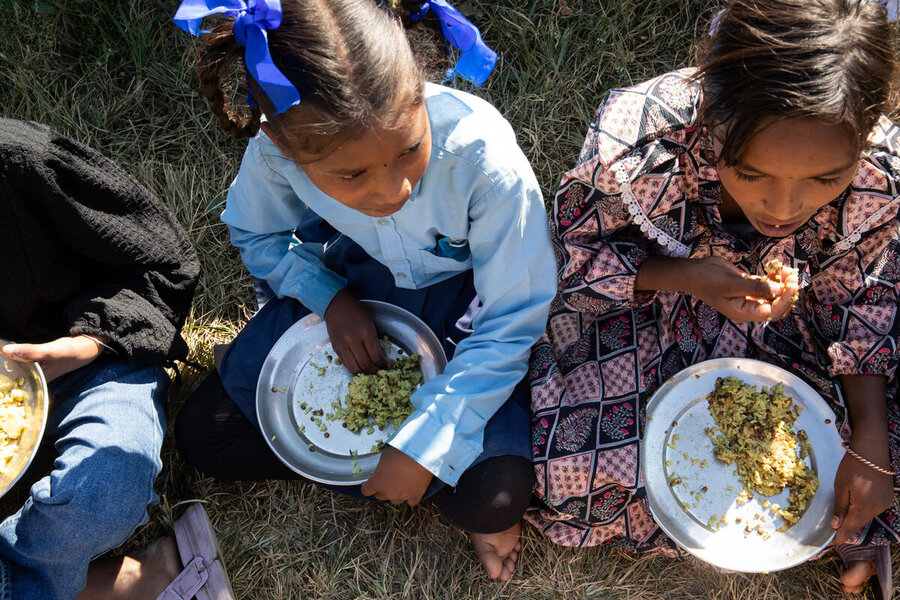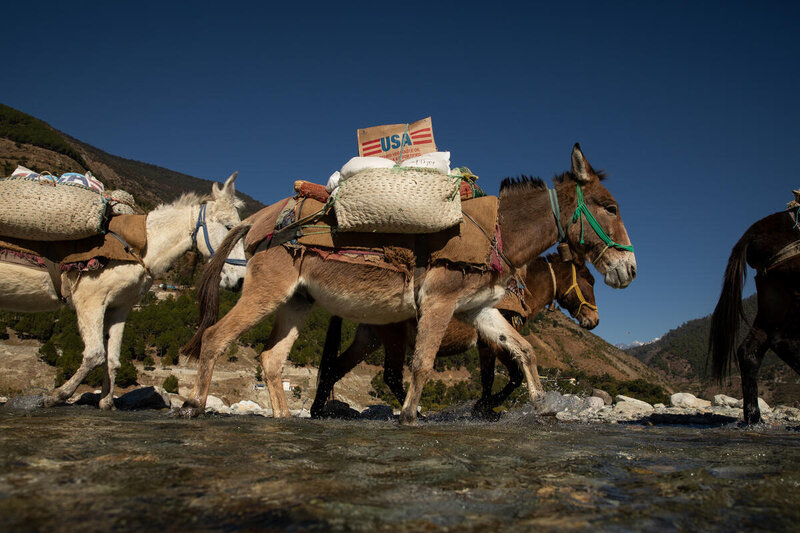The backstory: The sherpa of Nepal’s Far West

Sunlight trickles through tiny holes of Basanta Singh’s tin stable in Baihang village, in mountainous western Nepal. It’s nearing 7 am as the 45-year-old farmer saddles up his six mules — each named after a popular mountain in the Himalayan range.
Soon, they’ll be starting the two-hour journey to a remote primary school in Sudurpaschim province where he lives, to deliver World Food Programme (WFP) food.
“Being a mule driver in this harsh terrain is not a job, it’s a way of life,” Singh says.“Money is second place. First place is being in the mountains.”
Lovingly nicknamed ‘sherpa’ by his many friends for his strength and resilience, Singh counts among a handful of mule drivers delivering WFP assistance to dozens of schools across Nepal that are too remote to reach by road. It’s a vital job in one of Asia’s poorest countries, where child malnutrition is high.
“The responsibility to transport food for school meals is largely up to local communities,” says WFP Representative and Country Director Robert Kasca of our overall school feeding programme that reaches a quarter-of-a million primary school children across three districts of western Nepal. “That includes mule drivers who transport crucial supplies to places where they’re most needed.”

At a WFP warehouse located a half-hour trek from his stable, Singh hastily loads up sacks of rice, lentils and cooking oil on the backs of his six friends. With a tinkle of bells, the mules are off, pounding up a steep dirt trail to deliver the supplies.
The deliveries are part of a grueling work schedule that sees Singh get up at 4 am daily, and often put in a 100-hour week. “Raising mules is very labour intensive, even though it’s something that makes me happy,” he says.
Singh is also a parent of two school-aged children, who understands the importance of nourishing meals in improving children’s nutrition and learning. One attends a school on his delivery rounds, an hour-long trek away.
Life was not always so satisfying. Fifteen years ago, Singh was swindled by a company, and suddenly unable to provide for his family. He became a hired farmworker, before investing in mules pawning his wife’s jewelry to pay for them. In 2015, WFP tapped Singh and his animals for the school food deliveries.

Today, his business and knowledge of animal husbandry have grown. He has two employees, and his wife has her jewelry back — along with a new pair of gold earrings. With each passing year, Singh says, his sense of fulfillment has grown.
“Some fly planes, I drive mules,” he says. “It is something that makes me happy.”



